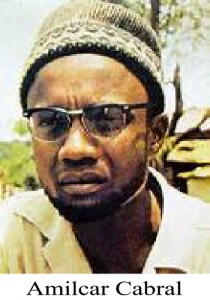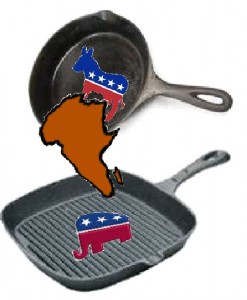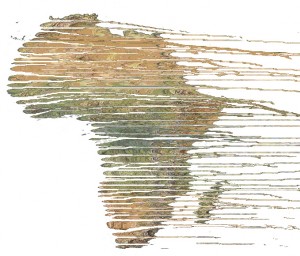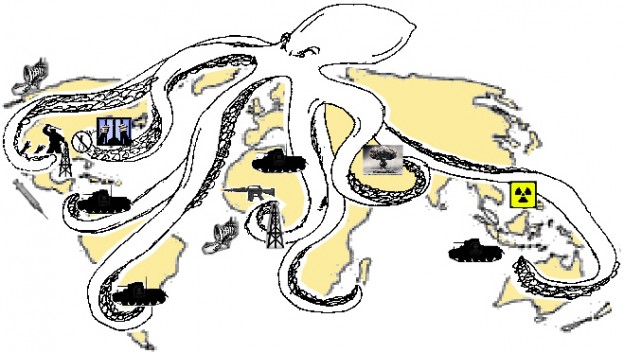
By Nb Ka Ra Christopher—A Concise Version Of An Extended Position Paper
October 1st, 2008
EDITOR’S NOTE: This commentary, originally written in 2008, remains relevant today. Despite having entered a self-proclaimed “Post-Racial Society”, we still see all the ills that impacted upon people of Afrikan descent – poverty, crime, education, institutional racism, police brutality, disproportionate prosecution and punishment, political imprisonment, dispossession of Black Farmers and the increasing colonization of our Mother Continent by US-based multinational corporations. Add to this the fact that the racial climate has suffered in the United States because of a social and political backlash against the Obama Administration (despite its own acquiescence to the right-wing political agenda), and we see evidence that, in many ways, life for Afrikan descendants is worse than before, and the need for both external and internal reparation is greater than ever. Here, Baba Neb Ka Ra of Per Ankh Em Smai Tawi gives historical and spiritual perspective to the call for restitution and reparation from the world’s dominant superpower, one which became so largely by the unpaid labor of our Afrikan Ancestors.
*****
This commentary is being shared from a collective voice of Indigenous Afrakan ascended people at a time when many states, corporations and entities of the mainland United States of America are making verbal apologies for slavery and its long-lasting institutions that still impacted our social & economic life in 2008 and continue to do so today.
We greet you all with great peace, justice, love and harmony in the Name of Our Great Mother-Father Neter-Awe-All Nature: I Am That I Am The All In All:
This commentary is a synopsis of an extended treatise being addressed to the Honorable Judges and US Attorneys, executive, legislative and other judiciary agents, branches and representatives of the United States of America et. al. Its main purpose is to inform your relative institutions of our position as Indigenous Afrakan Survivors of the unjust and criminal captivity and enslavement of our Indigenous Afrakan Ancestors. This commentary serves as the ra-initiation of a pursuit for a legal complaint, on behalf of our Indigenous Afrakan Ancestors and we as their ascendants (descendants) to be filed charging the entity and institution known as the Sovereign Government and Nation of the United States of America and other nations to include yet not be limited to: Great Britain, Portugal, Spain, Holland, Sweden, Belgium, Germany, Denmark, Islamic Leaders of Mecca-Arabia, Israelite Leaders of Aretz-Israel, and other nations, institutions, organizations, families, and entities that have committed mass crimes, criminal activities, genocide, oppression and racism against Indigenous Afrakans, Ameridians and other indigenous peoples, families and nations of huemanity. These mass murders, crimes and acts of genocide have no statutes of limitations.
This commentary is being written on behalf of the indigenous Afrakan Ancestors and their ascendants (descendants) who have not yet been vindicated for the organized, conscious and planned inhuemane injustices and crimes committed against our ancestors during the Indigenous Afrakan Trans Atlantic Slave Trade Holocaust-Maangamizi, the conquest of the Americas, the colonization of the Americas and Caribbean, the development of the modern nations of the western hemisphere inclusive of the United States of America, the colonization and neocolonialization of Afraka, and the partitioning of Afraka into more than 50 countries at the Berlin Conference of 1884. This is the beginning of a process for justice to be administered, restored and atoned for the victims that have suffered from the criminal activities that were consciously and systematically incorporated and utilized to expand European imperialism, supremacy, globalization and dominance over non-Europeans, such as the Indigenous Afrakans and their ascendants (descendants) and other Indigenous Peoples. Just a mere gesture of apology is not going to vindicate and be enough atonement for the souls and spirits of our ancestors when we look at the existing conditions of our Indigenous Afrakan Peoples on our continental homeland, our social conditions as their ascendants (descendants) in the Diaspora, and the inhuemane life conditions of other Indigenous Peoples of the Earth. The “wicked king” of the biblical “Exodus Story” did not just give an apology for the “enslavement” of Israel, nor did Germany just give the Jews a verbal apology for their holocaust mass murder and enslavement against the Jews pre, during and post-World War II.
We need for justice, atonement, and amends to be made to rectify the injustices and abuses, and manifestation of restitution for the unjust and inhuemane crimes committed against our Indigenous Afrakan ancestors. This needs to begin with communications (educational symposia, summit, public policy meetings, counsel, mediation et. al.) with those in authority so that we can begin to initiate and establish a process for this matter to be brought to the table in a proactive and intervention-driven international forum through an established International Court of Justice of Indigenous Afrakan People, other Indigenous Peoples, and the United Nations.
When we look at the existing conditions of the Indigenous Peoples of the countries and nations that have experienced the invasion, conquest, domination, illegal occupation of their homes and homeland, the exploitation and terrorism, as well as those that were unjustly torn from their indigenous homelands, one can see plainly the inhuemane conditions which they are still facing everyday for their survival. Our Indigenous homeland of Afraka, our Diasporic colonies and countries, the habitations of the indigenous peoples of the world are all experiencing a heavy unjust imbalance in economic poverty, healthcare, education, resource development, political unrest, housing shortages, environmental catastrophes, endemic human made plagues and diseases that are killing our populations in a genocidal and exterminating proportion. When we look at Europe, America and many of the so-called developed and industrial nations, we see the opposite. We see them thriving in material gains, education, health, economics, stable political structure, strong military powers etc. Simultaneously, we see them invading and oppressing other nations and distributing their wealth to others like themselves while depriving others that are not of their same hue and race. They need to “dig the log out of their own eyes before they can dig the speck out of others’ eyes.”
We have to do something and all things necessary to bring about a change for the betterment of our ascendants (descendants), ourselves and to vindicate our ancestors who did not have the right to seek justice and equality. We Indigenous Afrakans have to ra-spect that the purpose of the great amount of lives lost in the Indigenous Afrakan Transatlantic Slave Trade Holocaust-Maangamizi and the loss of lives during their resistance to their capture and enslavement does not go in vain. We have to utilize this experience to assist huemanity. Our sacrifices throughout the Maangamizi serve a greater purpose of saving us and our continental indigenous Afrakan homelands and Earth from genocide et. al.
Many of us are taught by our parents and elders of just and sound mind, that we should always strive to do the right thing. Now it is time for us to do the right and just thing for the Earth, the birthplace and cradle of Huemanity – Afraka, our ancestors, ourselves and most of all our children. We have been told that we must: “know the truth-(Maat)-so that the truth- (Maat)-can set us free.”
Though we may not have legions and battalions of visible warriors and troops, armed with the latest arsenal of military technology and weapons of mass destruction, we do have the faith in our Neter-Awe-the All Nature Supreme Mother Father Being, the I Am That I Am, the All In All and our sacred continental homeland, Afraka, our ancestral Wisdom and Guidance, our Present Selves and Elders and the hope of our youth and yet unborn. Dr. John Henrik Clarke taught:
“Africa is our center of gravity, our cultural and spiritual mother and father, our beating heart, no matter where we live on the face of this earth.”
We share with huemanity words of wisdom by two of our departed sages, scholars and orators, Dr. John Henrik Clarke and Dr. Asa G. Hilliard, III:
“In the United States, which is a nation composed of immigrants, the Africans have a special and tragic uniqueness. We are the only immigrants who came to America [Caribbean] against our will. We are the only immigrants who came with an invitation. The nature of this invitation, the chains, the filthy ships, the guns, and the vile sailors, who had no respect for our humanity, will not be discussed here. But the invitation was special just the same. When we arrived in America [Caribbean] we had no housing problem, no employment problem. There were plenty of jobs waiting for us, with no pay for nearly 300 years. Our contribution to the economy of the United States, the Caribbean Islands, and the world in general laid the basis for global capitalism in the modern scientific and technical world.”—From Dr. Clarke’s Wisdom Teachings from Notes for an African World Revolution: Africans at the Crossroads (p171).
“Mental bondage is invisible violence. Formal physical slavery has ended in the United States. Mental slavery continues to this present day. This slavery affects the minds of all people and, in one way, it is worse than physical slavery alone. That is, the person who is in mental bondage will be “self-contained.” Not only will that person fail to challenge beliefs and patterns of thought which control him, he will defend and protect those beliefs and patterns of thought virtually with his last dying effort.”—Dr. Asa Hilliard’s wisdom teachings from African Contributions to World Civilization by Tony Browder
Our Indigenous Afrakan Ancestors were brought to these western shores against their free will and by force to resolve a labor shortage problem of European capitalist nations and businesses. The decision to enslave the Afrakans as a captive labor force was a conscious business decision made by these nations, entities, systems, and individuals. The economic, political, social, health, educational, psychological, and spiritual problems that we the Indigenous Afrakans and other Indigenous Peoples are now experiencing are directly and indirectly related to the decisions made by these nations, entities, systems and individuals when they believed they were solving their immediate problem for a cheap labor source. However, their temporary resolution to that problem of several centuries ago has affected and caused a plethora of problems and injustices that need to be amended and reconciled. The nations, entities, corporations, and institutions that have benefited and are still benefiting need to become a part of the solution and not continue to be part of the problem. We must remember that in mathematics a problem is not resolved until both sides of the equation are equaled and balanced. The scales of justice need to be balanced so that justice is properly administered by those who claim to be “just” & democratic nations of freedom.
A final point for this commentary recommends that we heed the words of an Ancient wise one, the sage Kheti of Afraka-Khamet Nwt em Smai Tawi (NE Afraka/UAR/Egypt) from the book: Selections from The Husia by Dr. Maulana Karenga:
I. “Be skilled in speech so that you will succeed. The tongue of a man is his sword and effective speech is stronger than all fighting. None can overcome the skillful. A wise person is a school for the nobles and those who are aware of his knowledge do not attack him. No evil takes place when he is near. Truth comes to him in its essential form, shaped in the sayings of the ancestors.”
II. “Follow in the footsteps of your ancestors, for the mind is trained through knowledge. Behold, their words endure in books. Open and read them and follow their wise counsel. For one who is taught becomes skilled. Do not be evil for kindness is good. Make the memory of you last through love of you. Multiply the people whom the city shelters, then god will be praised for your donations. And people will … give thanks for your goodness and pray for your health.”—(p.50-53)
In the Name of Our Awe- Mother –Father Neter-Awe-All Nature the Supreme Being of Creation and its administering powers and principalities, and in the Name of Our Most Holy and Sa-Ankhtified Noble and Glorified Ancestors and Ancestoresses, and in the Name of Our Living and Guiding Elders, and In the Name of Our Present Selves, Our Children and Our Yet Unborn, I greet all those who read these words with Maat Mer Hotep Hena Ankh Udja Seneb –Balanced Measure; Truth, Unity, Care & Merging; Peace and Highest Satisfaction; Together with Life Eternal, Strength & Stability, Health & Wellness.
Ra-spectfully in Maat as Truth, Djehuty as Wisdom and Seshait as the Practice of Truth and Wisdom,
I Am Neb Ka Ra Kherishetapheru, Sa Aset-Asar, The Widowers Son,
Aka slave name CARL FERNANDO CHRISTOPHER
Tepi Her Sesh Em Per Ankh Em Smai Tawi Khamet Nwt
Head and Chief Scribe of the House of Life of the United Twin Lands (Smai Tawi) Sovereign Nation State of the Khametu Indigenous Black People Kountry-Afraka-Khamet Nwt
“Free men and women name themselves and their offspring with pride. Enslaved men and women carry their slave masters and slave mistresses identification tag (“name”) in shame though they don’t know it!” —Ancestral Elder C. K. Jochannan, the father of Dr. Yosef Ben Jochannan
Per Ankh Em Smai Tawi can be contacted on the Web at http://perankhu.net/.




